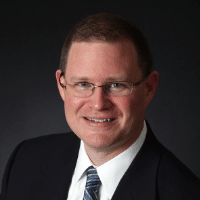Interview with Bob Riley, Director, Energy Transition and Sustainability, FCC, W. R. Grace & Co.

To start with, could you share an overview of Grace, and a couple of facts and figures to illustrate your global importance and contribution?
Our industry-leading business segments provide innovative products, technologies, and services for several industries. Our specialty silica and pharma fine chemicals business manufactures products based on silica chemistry. Our polyolefin catalysts and process technology licensing business develops catalysts for polymer, petrochemical, renewable, and other catalytic processes.
Under the umbrella of Refining Technologies, our Fluid Catalytic Cracking (FCC) catalyst division and our ART Hydroprocessing joint venture with Chevron serve refiners processing fuel and petrochemical feedstocks. With $1.7B in sales (2020), customers 60 countries, and more than 4,000 employees working in 30 countries, we’re proud to be a leading global supplier of specialty chemicals.
Tell us a little more about your main offerings and technologies. How do they help refiners and the downstream sector in general?
We have a diverse range of technology offerings to support the petroleum and chemical industries. In fact, we are the #1 supplier of FCC catalyst and additive solutions globally. Our technology is the result of a persistent focus on customer-driven innovation.
Careful evaluation of market needs and close collaboration with our customers powers our product development process so that we have a robust pipeline of solutions in development. We recognize that we’re in the midst of a global energy transition.
For several decades now, our R&D and product development teams have also been exploring some of the key changes to refining processes that will transform our industry and direct our portfolio.
What do you think the shape of post-pandemic recovery looks like for Asia? What, in your opinion, will be the potential impact of COVID-19 on refining and petrochemical markets?
The demand for refined products in the Asia Pacific region has unfortunately experienced some setback in Q2 due to the continued COVID crisis in some areas. Nevertheless, industry analysts expect the second half of 2021 to see improved demand as more countries see increased vaccine rollout.
At Grace, we are optimistic for a strong demand return by the end of the year and as we move into early 2022.
How can refiners effectively capture the benefits of the energy transition?
Refiners’ abilities to align their operations with the coming changes in how the world uses energy will be dependent on their location, regulatory environment, access to certain feedstocks, and ability to invest in decarbonization projects.
Processing renewable or other low carbon intensity feedstocks can offer a way to reduce the carbon footprint of the refinery, and in certain contexts, there is significant support available from governments to enable the processing of these feedstocks.
While the energy transition will have a significant downward impact on transportation fuel markets, there is still long-term growth expected in petrochemicals. Retrofitting, adjusting, or otherwise aligning existing operations with production of petrochemical feedstocks offers another way to adapt the refinery to be competitive.
Tell us a little more about your commitment to sustainability. What’s your vision to transform the industry and implement a more circular economy?
Grace has accelerated its commitment to sustainable operations in the last several years. In the last year, we: announced corporate sustainability goals of a 22% reduction in CO2e, 10% reduction in water use, and 5% reduction in waste to landfill, to be accomplished in the next 10 years; appointed a Chief Sustainability Officer as part of the Grace leadership team; and participated in third-party frameworks such as CDP, Ecovadis, Sustainalytics, and RobecoSAM to disclose sustainability metrics.
In addition to approaching our own operations sustainably, Grace has been working with our customers around the world to develop products that enable their sustainability ambitions. In 2020, 49% of our sales directly contributed to our customers’ sustainability objectives, and 62% of our R&D projects tie to one or more sustainability driver.
Refining operations have a strong potential to drive the circular economy; in part due to their scale, and the ability that refiners have developed over decades to deal with a wide variety of feedstocks. The refining contribution to a circular economy is going to be one where refiners enable the re-use of materials that are collected after their primary/original use, by practicing some combinations of existing and some new chemical recycling processes. These processes are under rapid development now, and significant advances are expected in the future.
Bob Riley is the Director of Energy Transition and Sustainability for Grace. In this position, Bob is responsible for global business strategy and execution related to external market changes driven by these key transformations in the refining industry. Additionally, Bob is responsible for Grace’s digitalization strategy, and other areas of new business development. Bob has been with Grace for 23 years, holding a wide variety of positions, including FCC technical service, sales, marketing, Six Sigma, and process and quality assurance.
Register to hear Bob speak at this year’s Asian Refining Technology Conference (ARTC) with the code “ADSARTC50OFF” for a 50% discount!